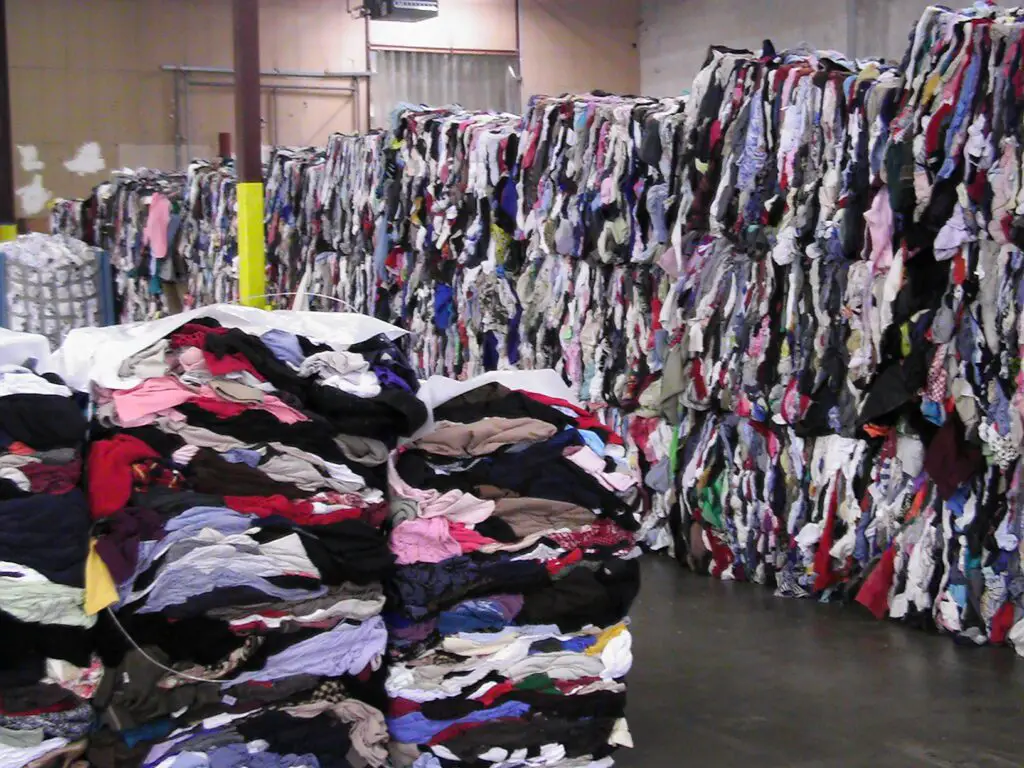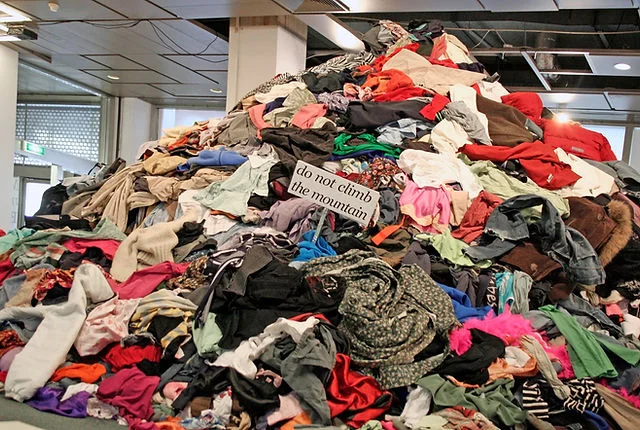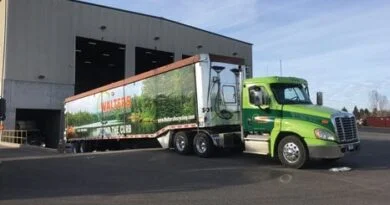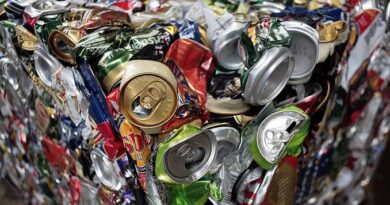San Francisco Textile Recycling Center
Textile recycling including San Francisco textile recycling for instance is the process of repurposing used or unwanted textiles to create new materials. It is an essential part of the sustainability movement, as it helps to reduce the amount of waste that ends up in landfills and contributes to environmental degradation. Textile recycling can be done in several ways, and the methods used depend on the type of textile and the desired end product.
One of the most common methods of textile recycling is mechanical recycling. In this process, used textiles are broken down into smaller pieces, and the fibers are then separated from other materials such as buttons, zippers, and labels. The fibers are then spun into new yarns, which can be used to create new textiles.
Another method of textile recycling is chemical recycling. This process involves breaking down the textile fibers using chemicals, such as solvents or acids, to create new materials.
Chemical recycling can be more efficient than mechanical recycling, as it can break down fibers that are difficult to separate mechanically. However, it can also be more expensive and can require specialized equipment.
Textile recycling can also involve upcycling, where used textiles are transformed into new products without breaking down the fibers. This process involves taking used textiles and repurposing them into new products, such as bags, rugs, and clothing. Upcycling can be a more sustainable alternative to recycling, as it does not require as much energy or resources.
The benefits of textile recycling are numerous. By recycling textiles, we can reduce the amount of waste that ends up in landfills, which can take hundreds of years to decompose. Textile recycling also helps to conserve natural resources, such as water and energy, which are used in the production of new textiles. Additionally, recycling textiles can reduce greenhouse gas emissions, as the production of new textiles can be a significant source of carbon emissions.
However, textile recycling is not without its challenges. One of the main challenges is the lack of infrastructure for recycling textiles. While many countries have programs for recycling paper, plastic, and metal, textile recycling is still relatively uncommon. Additionally, some textiles, such as those made from synthetic fibers, can be difficult to recycle, as they do not break down easily.
Textile recycling is an important part of the sustainability movement. By repurposing used textiles, we can reduce waste, conserve resources, and reduce our impact on the environment.
While there are challenges to textile recycling, such as the lack of infrastructure and difficulties in recycling certain types of textiles, the benefits of recycling textiles far outweigh the costs. With continued investment and innovation, textile recycling can become an essential part of our efforts to create a more sustainable future.
San Francisco Textile Recycling Center

San Francisco is a city that has been at the forefront of environmental initiatives, and its commitment to sustainability is evident in its textile recycling efforts. The city has several textile recycling centers that play a vital role in diverting textile waste from landfills and promoting a circular economy.
One of the most prominent textile recycling centers in San Francisco is the SF Goodwill Textile Recycling Center. SF Goodwill is a non-profit organization that operates several thrift stores in the Bay Area and has been a leader in textile recycling for over a century.
Their textile recycling center in San Francisco is a state-of-the-art facility that recycles over 18 million pounds of textiles each year. If you’re looking to reduce your environmental footprint, consider checking out the Zero Waste stores San Francisco has to offer for sustainable and eco-friendly products.
The SF Goodwill Textile Recycling Center accepts a wide range of textile materials, including clothing, shoes, bedding, towels, and more. They also accept damaged and stained items, which can often be repurposed or recycled into new products.
Once the items are collected, they are sorted and graded based on their condition and quality. The highest quality items are resold in SF Goodwill stores, while the rest are either recycled or repurposed.
The recycling process at SF Goodwill Textile Recycling Center is comprehensive and efficient. The items are first sorted by hand to remove any non-textile materials such as buttons, zippers, and metal fasteners.
The textiles are then sent through a shredder, which breaks them down into small fibers. These fibers are then baled and sold to companies that use them to make new products, such as insulation, carpet padding, and soundproofing materials.
Read Also: Mastering the Art of Making Signage
The SF Goodwill Textile Recycling Center is just one example of the many textile recycling centers in San Francisco. Other organizations, such as the Salvation Army and Out of the Closet, also operate textile recycling programs in the city.
These programs play a critical role in reducing the amount of textile waste that ends up in landfills and promoting a circular economy where resources are reused and repurposed.
Textile recycling centers in San Francisco are essential for promoting sustainability and reducing waste. SF Goodwill Textile Recycling Center is a prime example of a state-of-the-art facility that is committed to diverting textile waste from landfills and promoting a circular economy.
The city’s textile recycling initiatives are a testament to San Francisco’s commitment to environmental stewardship and serve as a model for other cities to follow.
San Francisco is a city that has long been known for its commitment to environmental sustainability. The city has implemented various initiatives to promote green practices, such as requiring composting and recycling in households and businesses. Textile recycling is another area where San Francisco has made significant progress towards sustainability.
The benefits of textile recycling are numerous. By diverting textiles from landfills, it reduces the amount of waste that ends up in the environment and reduces the need for new resources to be extracted to make new products.
Recycling textiles also reduces greenhouse gas emissions associated with textile production, such as those from raw material extraction, transportation, and manufacturing. Moreover, textile recycling creates new job opportunities in the recycling industry and reduces the costs associated with waste disposal.
San Francisco’s textile recycling centers play a vital role in achieving these benefits. They provide a convenient and accessible way for residents and businesses to recycle textiles and promote a circular economy. Moreover, they educate the public on the importance of textile recycling and the impact of textile waste on the environment.
In addition to SF Goodwill Textile Recycling Center, other textile recycling centers in San Francisco include Recology, which operates several recycling centers in the city, and the Community Thrift Store, which has been a long-time supporter of sustainable practices. These centers also accept a wide range of textiles and work towards diverting textile waste from landfills.
San Francisco’s textile recycling efforts have extended beyond the city limits. The city has partnered with other organizations and municipalities in the Bay Area to create a regional textile recycling program. The program collects textiles from several cities and sorts them at a centralized facility, increasing efficiency and reducing costs.
Textile recycling is an essential aspect of San Francisco’s sustainability efforts. The city’s textile recycling centers, such as SF Goodwill Textile Recycling Center, play a crucial role in promoting a circular economy and reducing the amount of textile waste that ends up in landfills.
San Francisco’s commitment to sustainability and environmental stewardship serves as a model for other cities to follow, and its textile recycling initiatives are a testament to the city’s dedication to creating a cleaner and more sustainable future.
San Francisco’s textile recycling centers also work towards reducing the environmental impact of textile production. The production of textiles requires vast amounts of resources, including water, energy, and raw materials. By recycling textiles, San Francisco’s recycling centers reduce the demand for these resources and reduce the environmental impact associated with textile production.
Textile recycling centers in San Francisco also work towards social sustainability. SF Goodwill, for instance, provides job training and employment opportunities for people with barriers to employment, such as individuals with disabilities, veterans, and those who have been incarcerated.
The organization’s textile recycling center provides a platform for these individuals to gain valuable work experience, develop skills, and build confidence. In this way, textile recycling centers in San Francisco also contribute to social sustainability by promoting inclusion and economic development.
Read Also: Cando Recycling Center Services
San Francisco’s textile recycling centers also collaborate with local artists, designers, and fashion enthusiasts to promote sustainable fashion practices.
These collaborations promote the use of recycled textiles in fashion and design, showcasing the potential of recycled materials to create unique and stylish products. Through these partnerships, San Francisco’s textile recycling centers promote sustainable fashion practices and inspire creative solutions for reducing textile waste.
Moreover, San Francisco’s textile recycling initiatives have been recognized and celebrated nationally and internationally. The city’s efforts to promote sustainability have earned it the title of the greenest city in North America, and its textile recycling initiatives have received several awards, including the Environmental Protection Agency’s WasteWise Gold Award.
San Francisco’s textile recycling centers play a vital role in promoting sustainability, reducing waste, and creating economic and social opportunities. The city’s commitment to environmental stewardship and sustainable practices has made it a leader in the field, and its textile recycling initiatives serve as a model for other cities to follow.
By promoting sustainable fashion practices, reducing the environmental impact of textile production, and creating job opportunities for marginalized groups, San Francisco’s textile recycling centers contribute to the creation of a cleaner, more sustainable, and more equitable future.
One of the challenges of textile recycling is educating the public about the importance of recycling textiles and the impact of textile waste on the environment.
San Francisco’s textile recycling centers have been at the forefront of this effort, conducting outreach and education programs to raise awareness about textile waste and the benefits of recycling.
SF Goodwill, for instance, offers educational tours of their textile recycling center to schools and community groups, providing hands-on learning experiences about the recycling process and the environmental impact of textile waste.
Moreover, San Francisco’s textile recycling centers work towards creating a more circular economy by exploring innovative ways to reuse and repurpose textiles. For example, SF Goodwill’s textile recycling center partners with local companies to develop new products made from recycled textiles, such as insulation for homes and office buildings. These partnerships demonstrate the potential of recycled textiles to create new products and reduce waste.
San Francisco’s textile recycling centers also work towards reducing the environmental impact of textile production by promoting sustainable textile practices. For example, they encourage the use of organic cotton, recycled polyester, and other sustainable materials in textile production. They also promote sustainable manufacturing practices, such as using renewable energy sources and reducing water usage.
San Francisco’s textile recycling centers are part of a broader effort to create a more sustainable and equitable future. They collaborate with other organizations and businesses in the city to promote sustainability initiatives and address environmental and social issues.
For instance, SF Goodwill partners with local nonprofits to provide clothing and other essentials to people in need, reducing the environmental impact of textile waste and addressing social inequality.
San Francisco’s textile recycling centers are an essential part of the city’s sustainability efforts. They contribute to creating a more circular economy, promoting sustainable fashion practices, reducing the environmental impact of textile production, and creating economic and social opportunities. Through education and outreach, they raise awareness about textile waste and the benefits of recycling, and through collaboration, they work towards creating a more sustainable and equitable future.
San Francisco’s textile recycling centers serve as a crucial component in the city’s sustainability efforts. By promoting sustainable textile practices and creating a more circular economy, they help reduce the environmental impact of textile waste while providing economic and social opportunities.
One of the primary challenges facing textile recycling is the need for public education and awareness about the importance of recycling textiles and the impact of textile waste on the environment. San Francisco’s textile recycling centers have taken a proactive approach in this regard, conducting outreach and educational programs to raise public awareness about textile waste and the benefits of recycling.
For example, SF Goodwill offers educational tours of their textile recycling center to schools and community groups, providing a hands-on learning experience about the recycling process and the environmental impact of textile waste.
In addition to education, San Francisco’s textile recycling centers also work towards creating a more circular economy by exploring innovative ways to reuse and repurpose textiles. Through partnerships with local businesses, they develop new products made from recycled textiles, showcasing the potential of recycled materials to create innovative and sustainable products. These partnerships not only help reduce waste but also stimulate economic growth in the city.
San Francisco’s textile recycling centers also promote sustainable textile practices, such as using organic cotton, recycled polyester, and other sustainable materials in textile production. By encouraging sustainable manufacturing practices, such as using renewable energy sources and reducing water usage, they help reduce the environmental impact of textile production.
San Francisco’s textile recycling centers contribute to creating a more sustainable and equitable future by collaborating with other organizations and businesses in the city to address social and environmental issues.
For instance, SF Goodwill partners with local nonprofits to provide clothing and other essentials to people in need, reducing the environmental impact of textile waste while addressing social inequality.
San Francisco’s textile recycling centers play a critical role in the city’s sustainability efforts. Through education, innovation, and collaboration, they promote sustainable fashion practices, reduce the environmental impact of textile waste, and create economic and social opportunities.
San Francisco’s commitment to environmental stewardship and sustainable practices has made it a leader in the field of textile recycling, and its initiatives serve as a model for other cities to follow.
Read Also: Shifting Cultivation: Features, Advantages and Disadvantages



